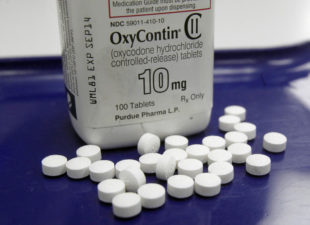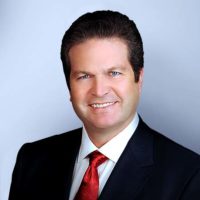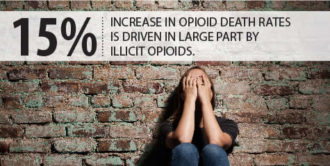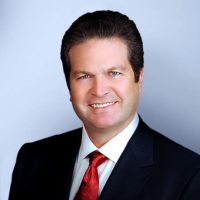When a physician treats a patient, he or she operates under the Hippocratic Oath to do no harm to a man, woman or child.
But in today’s world, where patients want an immediate cure for everything from the common cold to an aching back, patients are pushing physicians harder than ever for an instant solution to what ails them.

And it is contributing to the greatest drug crisis we have ever seen in our country.
Last year, a record 64,070 Americans died from opioid overdoses, with 75 percent of those cases originating from prescription pain medication or street drugs to dull the pain.
That’s a loss of life exceeding two Sept. 11 attacks on our nation each month.
In Georgia the numbers are just as frightening. More than 1,000 Georgians died in 2015 from overdoses from drugs such as hydrocodone, codeine, fentanyl, Vicodin, morphine and street drugs such as heroin – a 200 percent increase since 2000, according to the Georgia Prevention Project.
This epidemic is not only taking lives but leaving a swath of destruction as it destroys families, leaves children without parents, creates unproductive workers, makes it difficult for business to find employees and costs taxpayers billions as we try to sober up an addicted population.
President Trump is expected to issue a proclamation this week declaring the opioid crisis a national emergency, freeing up federal funds for potential treatment and other initiatives. Discussions are certain to turn toward revising public policy surrounding doctors who prescribe these pharmaceuticals and drug companies that manufacture them.

Many addictive behaviors start with a physician’s prescription, then escalate to an addict buying street drugs – often unknowingly purchasing deadly counterfeits.
To prevent patients from ever getting hooked, Georgia’s medical community needs to take the lead on solving this problem. Medical professionals need to revise policies to discourage patients from seeking deadly narcotics as a solution to physical or emotional pain.
For example:
** Physicians and dentists should adopt best practices under which opioids/narcotics are prescribed only in extreme circumstances for physical pain. In medically necessary cases, opioids could be prescribed for seven days instead of 30 days or longer and only after surgery, or for those in special circumstances such as cancer patients or hospice patients. Doctors and dentists should just say “no” when patients request an opioid unless it is clearly necessary for pain.
** Organized medicine, including state medical groups and specialty organizations in Georgia, should lobby Congress to immediately end the insurance payment system that includes pain as a fifth vital sign. Under a policy instituted in 2001, doctors now ask about the level of pain virtually every time they see a patient – initiating a process that leads a patient to feel a need for pain medication. Reimbursements should not be linked to patient satisfaction with pain management.
** Georgia insurance companies and state taxpayer-funded insurance plans should follow in the footsteps of Cigna, which announced that it wants to reduce opioid consumption among customers by 25 percent in the next two years. Beginning in 2018, it will no longer cover the cost of OxyContin for those insured under employer-based health plans.

Gov. Nathan Deal should take a similar step for Georgians covered by Medicaid or the State Health Benefit Plan – which insures state employees. Georgia should stop paying the cost for opioids except in medically necessary cases.
This summer, there were so many overdose victims accumulating at Atlanta-area morgues and the local crime lab that some autopsies and funerals were delayed for days. Many of these victims left behind children placed in foster care and distraught relatives and friends, stunned at how someone could surrender his or her life to a pill or a hit of heroin.
It’s time to approach the opioid crisis with a public affairs campaign similar to the one against Big Tobacco and cigarettes of 20 years ago. We have to shift attitudes, convincing people that these narcotics are rarely beneficial to a patient’s quality of life.
Richard L. Jackson is chairman and CEO of Jackson Healthcare of Alpharetta, one of the nation’s largest health care staffing and technology companies

